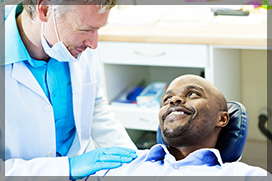Frequently Asked Questions
What is the most common oral surgery?
The most common oral surgery is tooth extraction, often required for impacted teeth, severe decay, or overcrowding. This procedure is essential for maintaining oral health and preventing further complications.
Why would someone need oral surgery?
The need for oral surgery arises from various dental issues such as impacted teeth, severe tooth decay, jaw misalignment, facial injuries, or infections, all of which require surgical intervention to restore oral health and function.
Is it safe to have dental surgery in Costa Rica?
The safety of dental surgery in Costa Rica is well-regarded, with many clinics adhering to international standards and employing skilled professionals. Thorough research and choosing reputable providers can ensure a safe experience for patients seeking dental care.
Who does surgery on the teeth mouth and jaw?
Surgery on the teeth, mouth, and jaw is performed by oral and maxillofacial surgeons. These specialists are trained to handle complex procedures involving dental extractions, jaw realignment, and treatments related to facial injuries and infections.
Who specializes in the surgery on the teeth mouth and jaw?
Oral and maxillofacial surgeons specialize in surgical procedures involving the teeth, mouth, and jaw. These highly trained professionals handle a variety of complex issues, including tooth extractions, jaw corrections, and facial injuries.
How do you know you need oral surgery?
Knowing you need oral surgery involves recognizing signs such as persistent pain, swelling, difficulty chewing, or impacted teeth. If you experience any of these symptoms, it’s crucial to consult Family Dental Care for a thorough assessment.
Why would you be sent to an oral surgeon?
You may be sent to an oral surgeon for specialized procedures that involve complex cases such as impacted teeth, jaw realignment, facial injuries, or severe infections. These conditions often require advanced skills and techniques to ensure proper treatment and recovery.
What conditions require oral surgery?
Certain conditions require oral surgery, including impacted teeth, tooth loss, severe jaw problems, facial injuries, and serious infections. Consultation with a dental professional can determine if surgery is necessary for your situation.
How long does oral surgery recovery take?
The recovery time after oral surgery varies depending on the procedure, but generally, patients can expect to heal within a few days to two weeks. Factors such as overall health and the complexity of the surgery also play a role.
What are risks associated with oral surgery?
The risks associated with oral surgery include infection, bleeding, nerve damage, and adverse reactions to anesthesia. Consulting with a qualified dental professional, like those at Family Dental Care, can help mitigate these risks and ensure a safe procedure.
Can oral surgery be performed under sedation?
Oral surgery can indeed be performed under sedation. This approach helps ensure patient comfort and anxiety reduction during the procedure, allowing for a more efficient and less stressful experience.
What are typical costs for oral surgery?
Typical costs for oral surgery can vary significantly based on the procedure, location, and complexity. On average, patients can expect to pay between $1,000 to $5,000, and it's essential to consult Family Dental Care for an accurate estimate based on individual needs.
How is oral surgery performed step-by-step?
Oral surgery is performed through a series of steps: first, the patient undergoes an evaluation and receives anesthesia; next, the surgeon carefully incises the gum or tissue; then, the necessary procedure, such as tooth extraction or jaw realignment, is conducted; finally, the site is sutured and monitored for recovery.
What type of anesthesia is used for oral surgery?
The type of anesthesia used for oral surgery varies depending on the complexity of the procedure and patient needs. Options may include local anesthesia for minor surgeries, sedation for moderate procedures, or general anesthesia for more extensive surgeries.
What are signs you need an oral surgeon?
The signs that you need an oral surgeon include persistent pain, swelling, difficulty chewing, impacted teeth, or jaw issues. If you experience any of these symptoms, it's essential to seek an evaluation from a dental professional.
How to prepare for oral surgery appointment?
Preparing for your oral surgery appointment involves several key steps: avoid eating or drinking for a specified time as advised by your dentist, arrange for transportation post-surgery, and ensure you have any necessary medical documents ready.
What aftercare is recommended post oral surgery?
Aftercare recommended post oral surgery includes resting, applying ice to reduce swelling, taking prescribed medications, and following a soft diet. Additionally, maintaining good oral hygiene while avoiding the surgical site is crucial for proper healing.
What to expect during your oral surgery consultation?
During your oral surgery consultation, you can expect a comprehensive assessment of your dental health, a discussion of your symptoms, and an explanation of the proposed procedure, including any risks and the recovery process.
Are there alternatives to oral surgery?
Alternatives to oral surgery include orthodontic treatments, medication for pain or inflammation, and non-invasive restorative procedures. However, the best option depends on your specific dental condition, so it's essential to consult with a dental professional.
How does oral surgery differ from general dentistry?
Oral surgery differs from general dentistry primarily in its complexity and focus. While general dentistry addresses routine dental care and preventive services, oral surgery involves more invasive procedures such as tooth extractions, jaw surgery, and corrective surgeries to treat specific dental issues.
What is the healing process for oral surgery?
The healing process for oral surgery involves initial swelling and discomfort, gradually improving over a few days. Full recovery typically takes several weeks, during which proper care and follow-up appointments are essential for optimal healing.
In what cases is oral surgery urgent?
Oral surgery is urgent in cases of severe pain, swelling, or infection, especially when it involves impacted teeth, trauma from facial injuries, or dental abscesses. Prompt intervention is crucial to prevent complications and ensure proper healing.
Can oral surgery impact long-term dental health?
Oral surgery can significantly impact long-term dental health. Properly performed procedures can resolve underlying issues and promote overall oral function, while complications or neglecting needed surgeries may lead to future dental problems.
What tools are used in oral surgery?
The tools used in oral surgery include scalpels, forceps, elevators, suction devices, and dental lasers, which help ensure precision and safety during various procedures.
Who can perform complex oral surgeries?
Only qualified oral and maxillofacial surgeons can perform complex oral surgeries, as they have specialized training and expertise to handle intricate procedures involving the mouth, teeth, jaws, and facial structures.
How to manage pain after oral surgery?
Managing pain after oral surgery involves using prescribed pain relievers, applying cold compresses to reduce swelling, and resting adequately. It's also important to follow your dentist's post-operative care instructions for the best recovery outcome.
What follow-up care is needed after oral surgery?
Follow-up care after oral surgery includes monitoring the surgical site for signs of infection, managing pain and swelling with prescribed medications, maintaining a soft diet, and attending scheduled check-ups with your dentist to ensure proper healing.
What is the most common reason for oral surgery?
The most common reason for oral surgery is the presence of impacted teeth, particularly wisdom teeth, which can cause pain, infection, and other dental complications if not removed timely.
Is oral surgery necessary for wisdom teeth removal?
Oral surgery is often necessary for wisdom teeth removal, especially when teeth are impacted or causing pain. It's crucial to address these issues promptly to avoid further complications and ensure a healthy oral environment.
How do you choose an oral surgeon?
Choosing an oral surgeon involves considering their qualifications, experience, and patient reviews, as well as verifying their certification and specialization to ensure they meet your specific dental needs.



Leave a Reply